Timothy J. Pruitt's Blog, page 137
November 19, 2021
Sketch National Play Monopoly Day

Happy National Play Monopoly Day to all fellow Monopoly fans!
Writing Tired
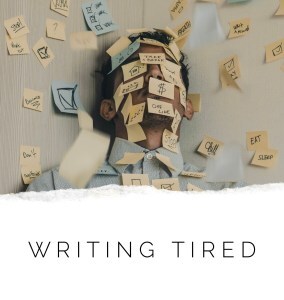
Writing tired is not desirable, unless it’s all that your schedule will allow in a particular season of life. Please bare in mind, there is a difference between writing tired, and publishing that way. Writing tired may sometimes be necessary, publishing that way is rarely a good idea. If you have no choice but to write when tired, here are a few tips.
The first and most obvious one is, if you can write at a different time, when more rested, find a way. Writing tired is like a ship filled with explosive cargo, it’s dangerous. Even if you have to risk saying I’ll write tomorrow, it’s usually better than writing tired. This is provided of course that you are able to write in a better condition the next day.
If you are in a season where the only way to write is to do so when you’re tired, there are some safeguards. One is what I alluded to in the first paragraph, write tired, but don’t edit, or publish that way. If you can write it down, and put it in a drawer whether physical or digital, do so. Give yourself the time to rest, then look at what you wrote with fresh eyes.
I’ll briefly talk here how to review tired writing. First be kind to yourself, you wrote, and even if all but an idea is thrown out, you have something to build on. Second be honest with yourself, if it’s horrible, don’t beat yourself up, but don’t waste energy trying to sell it to yourself either.
When writing tired, consider writing in short hand. Instead of trying to write full paragraphs, jot down concepts. Things you can build on, this is similar to making a list, but may have some ares that are detailed. At times in modes like this I’ll write an idea here, a full sentence there, a plot point, whatever allows me to capture the idea, moment, or event.
Give yourself clues that you’ll remember when you re-read it. You know what you’re writing now, but you’re admittedly tired. This means you may not be thinking the same way you would be when you’re not exhausted. Make it easy as it were to read not your own handwriting, but your thought pattern at the time.
When writing tired, consider alternate methods of writing. I mentioned audio and video yesterday in Writing Adjustments, you may find that a method of writing you don’t normally use, works when tired. Your brain may be too overloaded to type something out, or write it out, whereas a recording may help get it out of your mind.
That’s really the focal point of writing tired, getting it out of your brain, and onto something. It will free your mind up to truly rest. This will give you a sense of accomplishment that you may be tired, but you completed your writing goal. Now you have it in a form you can revisit later, evaluate, and make decisions on later.
Writing tired should be avoided, unless it can’t be. When you have to either write tired, or not write for a long period, there are ways to make it somewhat productive. Writing tired is not ideal, but you may be able to harvest an idea or two from your weary mind.
iPainting Its Thanksgiving Charlie Brown

It may surprise a few people to know that my favorite Charlie Brown holiday special is A Charlie Brown Thanksgiving. As it’s available now on streaming, and will air on PBS Sunday, I’d like to offer my rendition of one of the iconic scenes. Happy Thanksgiving to all whether your eating Turkey, toast, or tofurkey.
November 18, 2021
Sketch In A Star Wars Mood

Some days you just feel like sketching Star Wars. Whether you’re Yoda fighting a pack of unexpected stormtroopers on a forest planet. A small Jedi just learning who he is. A Grand Admiral trying to pick up the pieces, or a cranky Vader, and when was he not that way. Some days you’re in a Star Wars Mood lol.
Writing Adjustments
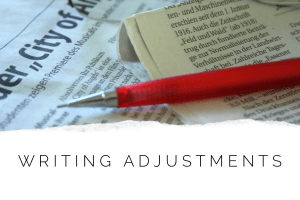
A number of people had a goal November 1st, to start writing a book, or at least to write every day. For some they’ve accomplished this, for some of us, life has caused interruptions. That’s not a problem, it’s a reality, but it’s also true that you do not have to allow it to stop you. You would just need to make some writing adjustments.
Generally you probably know I recommend writing 500 words a day, and it’s a great practice, but there are going to be days that it doesn’t happen. There are ways to deal with this, or work arounds that can help you keep writing. Writing regularly is about consistency, pattern, and routine, however there are times when pattern and routine may need to be adjusted.
If you do not have time to write 500 words a day, due to a busy season of life, there are other methods that can prove helpful. While some may take a little longer, it will keep you consistently writing, and help you to produce your first book. The most efficient method for most people may be 500 words a day, but not everyone falls into that category.
One alternate method is assigning a specific day to do some writing in each week. This does not mean a whole day of writing, but one day where you get a certain amount written each week. I would recommend it to be at least 500 words, but more like 1,000 if possible. Again this is not the fastest method, but an alternate one that may fit your schedule.
Writing some each week is favorable over no writing at all, and gives you something to build on. It will also keep your writing muscles active, and help to improve them over time. This will also allow you to build alternate routines for that one writing day, here is what I mean.
You can’t say to your calendar, this day every week is going to happen this way. You can say it, but you’d be crazy. What you can do is come up with some alternate routines, let’s call them A, B, and C. Routine A says when all things are equal, I will write at my best time of day for writing. For some this will be morning, for others evening, and for some night owls late night writing.
For Routine B I would suggest picking the second most favored time for you to write. You may write best in the morning, but if you find you write better at night than in the afternoon, make the night your Routine B. Routine C will be your least favorite writing time, but an option. When life gets crazy, this means that you have a plan with alternates to keep your writing going.
Another method is the research scenario. The first week of the month, make a list of the topics, sub topics, or subjects that you need to research in order to write your piece. Each week after, research one or two of those points, and make a small note or two on each. Doing this for a few months until you can return to regular writing will still advance your writing. You will have the necessary research, and the notes to use as building blocks going forward.
For today, let’s end with one more scenario, the video plan. Whether you use it as a post for your platform or not depends on you, and the topic, but a daily or weekly video is another tool. In this scenario there are different formats, but the one I would suggest is to speak on the subject that you desire to write on, and save the video.
Over time, in addition to continuing to make the videos, review them. I believe you will be surprised at the content that you have been “writing”. Some will have a problem with that term, and that’s okay, but the difference between a book and a television show is primarily the medium. Each is a form of content that was created, and fodder for multiple application, and adjustment.
Writing adjustments are necessary whether you’re a person who works second shift, the parent of a toddler, or a CEO handling a merger. It’s how you go about them that determines your level of success with your writing. It is possible to be very busy, and a very good writer, it just takes a few writing adjustments to stay on track.
iPainting William Frawley

He played so many parts before and after Fred Mertz, including a role in the original Miracle On 34th Street. This wonderful character actor starred in over 100 films, but to me will always be Fred Mertz first.
November 17, 2021
Writing Art
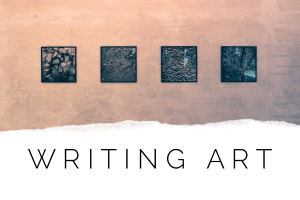
Writing art, as a play on words I could be talking about writing well, or writing about art. Actually I’d love to talk about both in this post today. I love words, because they can paint a picture, and I love art that tells a story.
When writing about art, I don’t only want to do know who painted or sculpted it. I also would like to know the story behind it, as well as the location and history of it afterwards. As with all writing, writing about art should not only convey a picture, it should tell a story.
As I mentioned, I’d like to write both to authors who want to write about art in some form, and about the art of writing. In both cases, your post should allow the reader to easily imagine the scene. Writing well doesn’t mean over detailing, but it does mean setting a scene for the reader to walk into. If describing a piece of art, they should be able to see more than the painting itself.
For example, there are many ways to write the following sentence, but let’s look at two. First, the simple way is to say, the old woman walked into the art gallery to see Gorge’s painting of her. This is an entry point to the reader, but it can be expanded upon. Yvette walked into Le Pierre’s small art gallery to see her husband Gorge’s painting of her when she had been in the military.
There is an excellent BBC show called Fake Or Fortune. In it they tell the story of a painting including who painted it, how it was painted, and what happened to it after that time to the present day. While this is a tv show, it has been crafted well due to the writers. Artful writing, whether about objects of art, or any other subject can be easily adapted to many forms.
This is true about writing and about art. For example, I’ve known people from all walks of life who enjoy art. It’s why there are both Picasso and Grandma Moses, they loved to create pictures. It’s also why people love both Charles Schultz and Charles Dickens in every area of life. The words form pictures, and the pictures tell stories. The two go hand in hand.
I would suggest that in your writing, you apply these simple ideas. Write in a welcoming way to your readers. Write in a way that paints a picture for them, but allows them to use their imaginations. Write in a way that engages, intrigues, and gives the reader a window into the story you’re telling.
Whether describing a painting from the 1940’s and how it was protected from Hitler’s grasp, or telling the story of a family climbing the social ladder to make a better future for their children, it can be told in an artful way. Strive to paint the picture for your readers in a way that is inviting. Writing art is about more than just forming a picture, it’s about lighting it well so that the reader can get a better view of it.
iPainting Thanksgiving Pumpkins
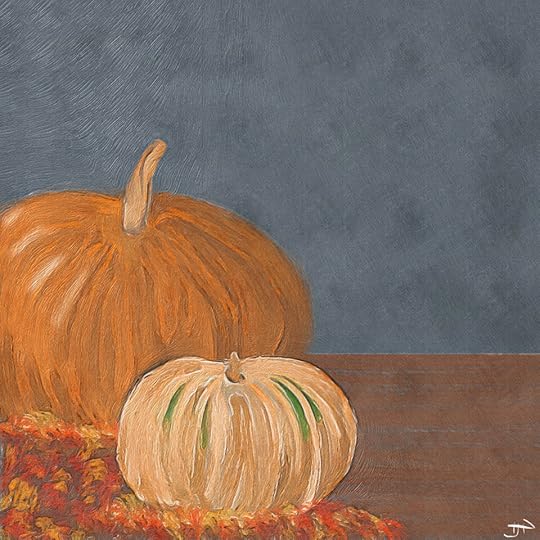
Psalms 116:17 (ESV)
17 I will offer to you the sacrifice of thanksgiving and call on the name of The LORD.
We are preparing for Thanksgiving, are you ready to celebrate with the family for your blessings this year?
November 16, 2021
Writing Hope
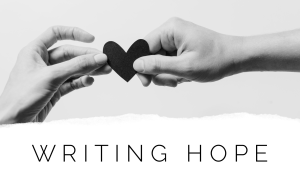
Today I would like to speak to a specific group of writers. In the past we’ve talked about particular groups such as authors of children’s literature, this morning I would like to focus on those who write inspirational or motivational writing. Having written several books in this field, some things are good rules of thumb to go by.
The first is to write from a point of encouragement. Whether it’s a difficult subject, or a simple one, writing from the perspective of being beside someone in their struggle is important. Writing from this point allows them to see that you know have experienced struggles, that if someone else overcame them they can too, but it also does something else. Beyond reminding them they are not alone, it shows that they have access to people who want to help bear their burdens.
Second, you want to have a foundational basis for your point. As a man of faith, I base everything on the Bible. I believe that it is The Inspired Word Of God, and it’s my basis for life. Because of this, when I write inspirational pieces, they usually begin with a concept or scripture from God’s Word.
If it’s a motivational piece, it may be from a leadership concept, quote, or analogy. Either way, I have a foundation to speak to. It’s not that I find something that works for what I want to say, but that I base what I say on what it says. If I believe in the concept, it’s part of my life, not just my writing.
Third, no matter the subject, I always attempt to focus on hope. Whether it’s salvation, current events, or personal struggles, one thing I always attempt to do. That is to point to the fact that Jesus died for all, so all could live. I don’t do this to fulfill a requirement, but because it is a personal passion. I know how He has made my life better, and I want to share this hope with others.
All of these rules of thumb will empower your inspirational, or motivational writing. It will serve your readers. Most of all, it will share hope with whoever reads your writing. Writing hope in my opinion, is the greatest form of writing we can share.




